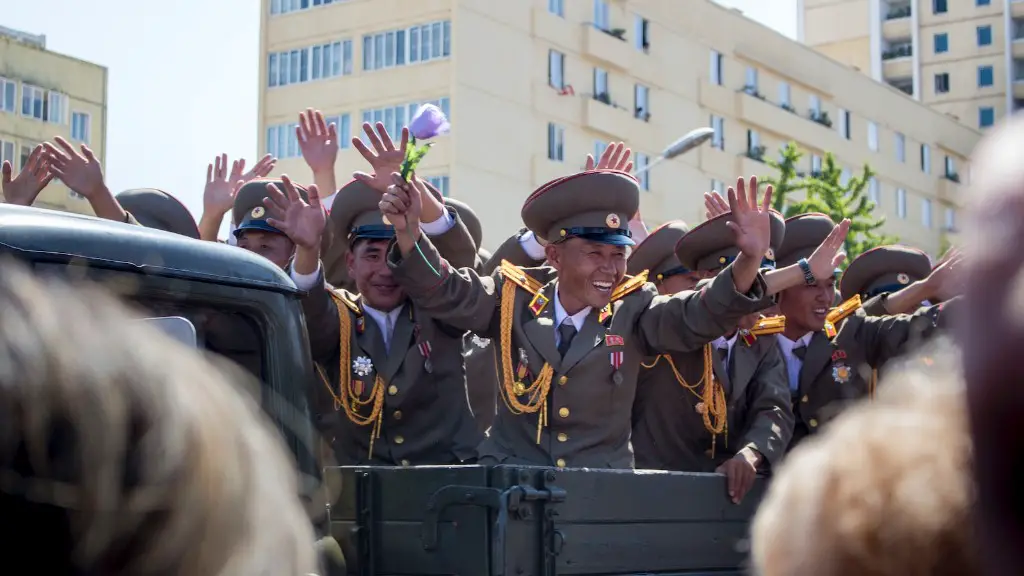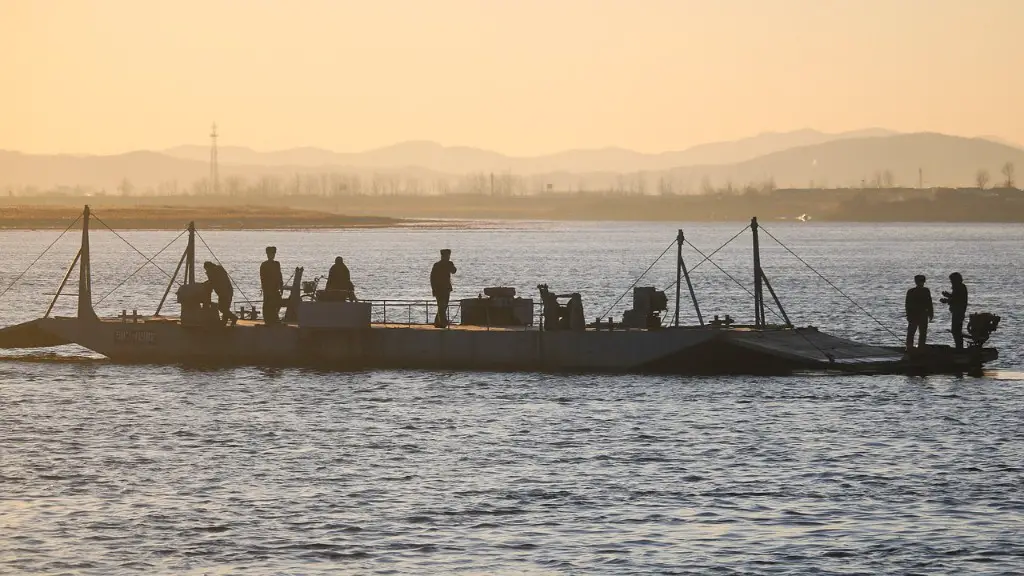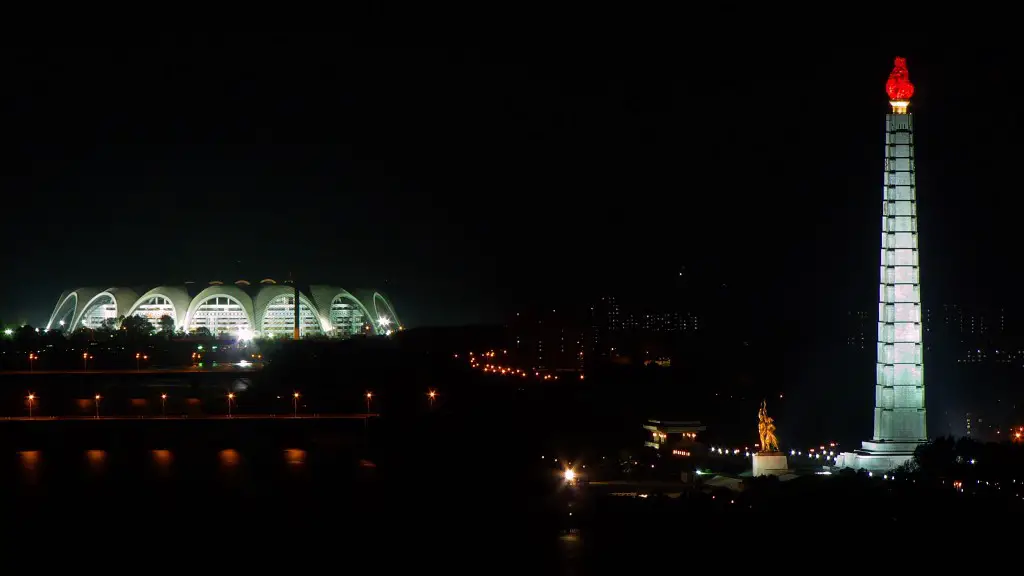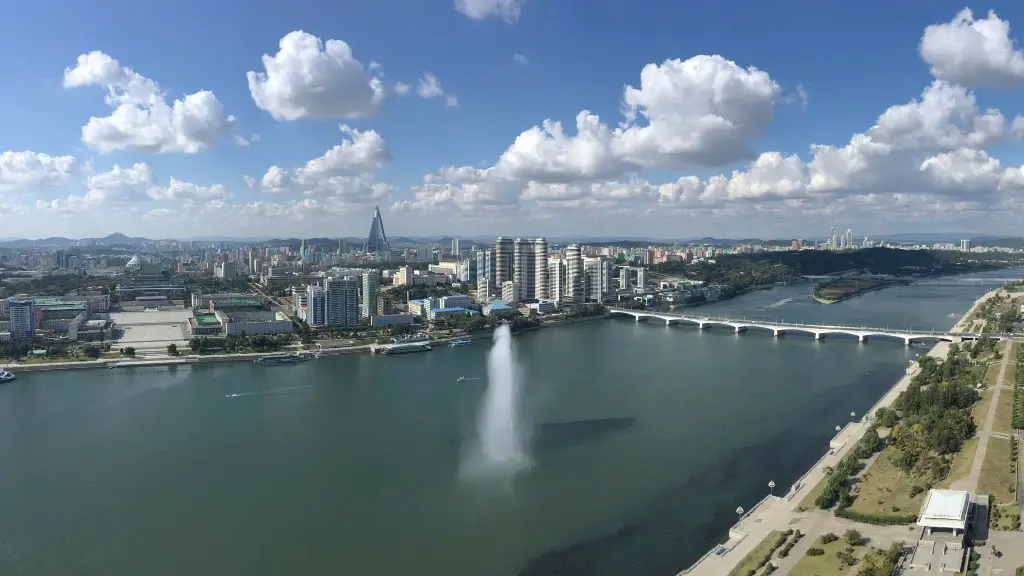North Korea is the continuing worry of many in the international community, especially surrounding the threat of its nuclear arsenal. Reports of nuclear tests and constant fiery rhetoric from its leadership have left many asking whether North Korea is about to spark a cataclysmic global war, one that could have disastrous consequences. Too often, however, this North Korea debate is driven by fears and speculation rather than facts and analysis. Here is a closer look at the real facts, developments, and perspectives surrounding the threat of North Korea and the possibility of a third World War.
Throughout its history, North Korea has been a single-party state governed by the Kim family. It has displayed complete disregard for international law by refusing to dismantle its illicit nuclear weapons program. The ongoing threat of a full-blown military conflict between North Korea and its neighbours, including South Korea, China, and Japan, is real. Over the past few years, North Korea has developed increasingly more powerful ballistic missiles and nuclear weapons, making its nuclear capabilities more dangerous than ever.
North Korea’s nuclear tests and continuous provocations have led to a range of sanctions from the United Nations and other countries, such as the United States, China and Japan. To date, these sanctions have been ineffective in curbing North Korea’s aggressive and destabilising actions, demonstrating the range of challenges the international community faces in containing North Korea’s nuclear ambitions.
While the possibility of a devastating global war has been raised, it is important to take a step back and look at the bigger picture. Despite their volatility, North Korean leaders are rational actors who care deeply about their own survival. North Korea’s nuclear threats are designed to ensure its own safety from potential U.S. action, and its leaders are severely aware of the consequences of any large-scale military conflict. In this sense, North Korea views these threats as a form of deterrence to avoid a potential preemptive attack or military intervention.
Furthermore, the international community is far better equipped to handle North Korea now than it was in the past. Countries like the United States, China and Japan are now actively involved in diplomacy and dialogue with North Korea. Although progress is slow, their efforts have helped to create a more stable environment between the two sides, reducing the possibility of a global war significantly.
In the end, it is difficult to say if North Korea is, or will be, a threat to global security. It is, however, important to be aware of how North Korea’s nuclear weapons program is evolving and how it is affecting the region and the world. Comprehensive analysis and assessment of the situation is needed to adequately assess the risk that North Korea may pose.
How Would the Global Community Respond?
If North Korea were to use its nuclear capabilities, the global community would respond with a unified front. The United Nations Security Council would be the first to issue a resolution condemning the action and imposing economic and diplomatic sanctions. The U.S. would deploy military assets to deter any further aggression from North Korea as other countries, such as Russia and/or China, would use their own diplomatic and political weight to contain the situation.
In the wake of North Korea’s nuclear threat, countries in the region would act quickly to protect themselves. Japan and South Korea, both U.S. allies, would have no choice but to immediately ramp up their own military activity to deter any potential threat from North Korea. Meanwhile, China, being North Korea’s only major ally, would use its influence to calm the situation and help defuse the crisis.
The global economic community would also be deeply impacted. Nations around the globe, including the U.S., China, and Japan, would have to respond by increasing economic sanctions, whereas smaller nations would have to consider the risk of trade with North Korea and the possibility of U.S. action against them. Additionally, oil prices worldwide could be affected if the crisis causes disruption to major shipping lanes.
The risk of nuclear war is a real threat and must be taken seriously. Global leaders must take a more proactive approach if they are to contain the situation and prevent a nuclear conflict.
What Are the Current US Strategies?
The US strategy towards North Korea’s nuclear program has been to impose economic sanctions, pursue diplomatic talks, and use its own military forces as a deterrence. Last year, the U.S. increased economic sanctions on North Korea to pressure it to abandon its nuclear weapons program and also worked closely with China to ensure it cooperated. Although progress has been slow-going, President Donald Trump has met with North Korean leader Kim Jong Un multiple times and has expressed hope for a peaceful resolution.
The U.S. also deployed military forces to the region to counter the North Korean threat. Led by the U.S., the combined forces of Japan, South Korea, and the United Kingdom are participating in joint military exercises and air patrols to deter potential North Korean aggression. Additionally, the U.S. has also deployed a missile defense system to both South Korea and Japan, and has put out warnings about any further missile testing in the region.
The US strategy has been welcomed by a majority of the global community, with countries such as France and Germany expressing support. However, there are also those who are critical of the US’s approach, particularly its reliance on economic sanctions and its lack of direct action. These critics argue that economic sanctions are ineffective and could potentially only worsen the situation, which could be further exacerbated if the U.S. were to take preemptive action.
In the end, the US has a robust plan of action to contain the North Korean threat, but it remains to be seen whether it will be effective in the long run. Nonetheless, the US and its allies must remain vigilant and prepared for any potential North Korean aggression.
What Are the Risks Involved?
The prospect of a global conflict stemming from a North Korean attack is a real, but often overlooked, danger. Any military action taken by North Korea against its neighbours or the United States could easily escalate into a full-scale global confrontation, possibly involving nuclear weapons. Such a conflict would be catastrophic, bringing an unimaginable level of devastation to millions of people.
The potential risks of a conflict also extend beyond the physical damage that could be caused. A global war could have a long-lasting effect on the global economy, and could potentially lead to further international instability, political tension, and global turmoil. Additionally, North Korea’s nuclear weapons program could be used, or shared, by other rogue states, thus further exacerbating global security threats.
The potential risks involved in a North Korean conflict must not be underestimated or overlooked. The international community must remain vigilant in its efforts to contain any potential aggression from North Korea and remain committed to dialogue and diplomacy if it is to avoid an all-out global war.
What Can Be Done to Avoid a Conflict?
The international community must remain united when facing the threat of a North Korean conflict. All nations should work together to ensure that the situation is managed in a responsible and safe manner. To achieve this, countries must focus on multiple tracks, such as diplomatic negotiations and economic sanctions.
Since its establishment in 1967, the United Nations has been a leading force in preventing the escalation of global conflicts and in resolving long standing disputes. The U.N. is in the uniquely powerful position to send in representatives and offer solutions to North Korea and its neighbours. As a result, it is essential for the international community to work together in support of U.N. efforts.
Through concerted diplomacy and dialogue, global leaders should aim to work out a long term solution to the North Korean issue. Dialogue and negotiation is the only way to ensure a peaceful resolution and to avoid an all-out global war. The international community must act swiftly to contain North Korea’s aggression and show North Korea that its actions will not be tolerated.
What Can the International Community Do?
The international community can play a major role in de-escalating the situation and avoiding a full-blown global war. One of the primary objectives should be to bring together all the nations involved parties in the dispute, such as the US, China, Japan, and South Korea, and to work out a peaceful resolution.
The U.N. can also be a major player in finding a solution, particularly if it is able to send experienced negotiators to the region. Moreover, the global community must ensure that North Korea’s nuclear weapons remain secure and under its control; if the weapons were to fall into the wrong hands, it could spark a global crisis.
The international community also has to be prepared for any potential military action from North Korea. Countries must bolster their militaries and prepare for any potential conflict. In addition, countries must also reinforce their missile defenses in case North Korea launches a missile attack.
It is important for the global community to act fast and decisively if it hopes to avoid a global war. The threat from North Korea is real and must not be overlooked.
What Are the Chances of a Global War?
The chances of a global war stemming from a North Korean provocation are slim, but not impossible. North Korean leaders would be taking a massive risk by initiating any large-scale military action because they know the consequences would be disastrous. Therefore, there is a strong possibility that North Korean leaders will be apprehensive of initiating a conflict.
Furthermore, the United States and its allies are better prepared than ever before to handle the North Korean threat. With a greater understanding of the issue, and stronger military and diplomatic ties with neighbouring countries, the US and its allies are in a far better position to contain the North Korean crisis.
Finally, the U.N. has increased its diplomatic efforts in recent years to broker a peaceful resolution, and in some cases, to directly negotiate with North Korea. Although progress has been slow, the increased dialogue between the two sides is a good sign that a global war might be avoided.
In the end, it is difficult to give an exact assessment of the risk of a global war stemming from North Korea. However, a greater awareness of the situation and a unified approach from the global community can go a long way in resolving the crisis peacefully and avoiding a disastrous conflict.





